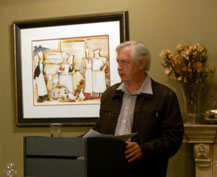Latest News Archive
Please select Category, Year, and then Month to display items
16 February 2024
|
Story ANTHONY MTHEMBU
|
Photo ROSINA MOTHIBA
 Prof Matseliso Mokhele-Makgalwa: Vice Dean; Research, Engagement and Internationalisation in the Faculty of Education at the University of the Free State (UFS).
Prof Matseliso Mokhele-Makgalwa: Vice Dean; Research, Engagement and Internationalisation in the Faculty of Education at the University of the Free State (UFS).
The Faculty of Education at the University of the Free State (UFS) proudly announces the appointment of Prof Matseliso Mokhele-Makgalwa as Vice Dean of Research, Engagement and Internationalisation, effective 1 January 2024. With a wealth of experience and a fervent dedication to academic advancement, Prof Mokhele-Makgalwa’s appointment marks a significant stride towards enhancing the faculty’s global presence and academic prowess.
Transitioning into a new role
Transitioning seamlessly from her previous role as Acting Vice Dean of Research and Postgraduate Studies, Prof Mokhele-Makgalwa perceives this new appointment as a natural progression, elevating her responsibilities to spearhead research endeavours, foster engagement, and cultivate international partnerships within the faculty. Embracing this pivotal role with enthusiasm, she underscores the importance of collaborative efforts among faculty members, securing research funding, and ensuring the quality and impact of scholarly outputs.
“I appreciate the opportunity to contribute significantly to the faculty’s research, engagement and internalisation efforts,” says Prof Mokhele-Makgalwa. “I look forward to collaborating with the faculty staff members to advance our academic initiatives on a broader scale.”
A vision of progression for the faculty
At the heart of her vision lies a commitment to realise the UFS’s Vision130, wherein Prof Mokhele-Makgalwa aims to elevate the international profile of the faculty, foster impactful research, promote engaged scholarship, and facilitate knowledge exchange on a global scale. Her strategic objectives also include positioning the faculty among the top three education schools nationally, reflecting her dedication to academic excellence and institutional advancement.
Afrikaans place names were not only given by Afrikaner people, says professor.
2012-09-25
 |
Prof. Peter Raper delivering his lecture on South African place names.
25 September 2012 |
Prof. Peter Raper, honorary professor at the Department of Linguistics and Language Practice, delivered a public lecture in Clarens earlier this month. The theme of the lecture was “From Stone Age to GPS: The fourth edition of the South African Place Names Dictionary”.
Prof. Raper shared the historical development of the project as well as the challenges and other interesting observations associated with the topic. He elaborated on the dramatic change in the focus of his research on place names in South Africa.
It was previously assumed that all of the Afrikaans place names were given by the Afrikaner people and that changing these place names was consistent with the mandate of the South African Geographical Names Council (SAGNC) to transform place names. Prof. Raper said more in-depth research revealed that a significant number of place names are actually translations of original San names – into Afrikaans, Khoi and the Bantu languages. He told the audience that given the constitutional stipulation that no cultural group’s heritage may be removed, this discovery calls into the question the modus operandi of the SAGNC.
Prof. Raper’s lecture was part of the conference programme of the Third International MIDP IV Symposium that took place on the Qwaqwa campus. The MIDP (Multilingual Information Development Programme) is a project sponsored by the Province of Antwerp. The theme for this year’s symposium was “Multilingualism for Empowerment” and was presented in collaboration with the University of Antwerp.